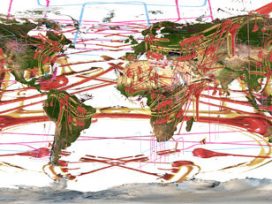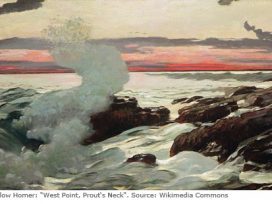Hakan Sarkdemir cites the lack of a professional distribution network as the biggest problem for Turkish journals. That said, being visible and selling well; selling well and being read well; being read well and having many readers: social media aside, these are not the same thing.
Articles
Read more than 6000 articles in 35 languages from over 90 cultural journals and associates.
Murat Yalçin of “Kitap-lik” asserts that culture and the arts thrive on individual awareness and thought, not collective sensibilities. Thus every journal has learn to cherish its knowledgeable readers – for which there are no simple formulas based on “responsibility”, “mission” or service.
Osman Deniztekin introduces a survey of Turkish journals that “Varlik” conducted in autumn 2012. Like their European counterparts, Turkish journals need public support. However, they are far more wary of risking their independence by receiving government funding.
‘It's best if all journals are self-sufficient’
Edebiyat Ortami
Mustafa Aydogan, editor of “Edebiyat Ortami”, explains why he thinks the moral support of governments is healthier than their financial support where journals are concerned. As for the quality of journals, diversity of content is crucial. Thus, every journal creates its own readership.
“SabitFikir” editor Elif Bereketli contends that digital forms are not yet capable of replacing literary journals, at the same time as setting her sights set on a project based exclusively on social media. In a harsh climate for many forms of writing and publishing, innovation is key.
‘When ethics and quality come together’
Iyi Kitap
Zarife Biliz of “Iyi Kitap”, which specializes in children’s and youth literature, challenges journals to stop printing unimpressive pieces by renowned authors and instead give voice to a variety of authors selected with more editorial attention, and be more inclusive.
Amid international concern over government reforms that endanger democracy in Hungary, Hodonyi and Trüpel discover a political renaissance in Hungarian civil society. Ahead of elections in Spring 2014, this may well be an antidote to the EU’s “political half-heartedness” on the matter.
As the Bulgarian post-communist transition faces its moment of crisis and the government resigns, the political class and the economic model it oversaw are the subject of deep dissatisfaction. Dimitar Bechev outlines what went wrong, and what can be expected of Bulgaria’s spring of anger.
The Southern Weekly affair
No closer to the Chinese dream?
The first week of 2013 saw a standoff between editors of the Chinese newspaper “Southern Weekly” and state propaganda authorities over a drastically rewritten new year’s editorial. Timothy Garton Ash introduces English translations of the original and published versions.

Colonial roots and current routes
Migration in the harbour city of Hamburg
Hamburg is one of the principle harbour cities in Europe and probably the most powerful in economic terms. Situated about 80 kilometres from the coast, the city was once part of the “Hanse”, or Hanseatic League – a powerful confederation of the shipping and trading cities within German territory. Hamburg developed from a free and independent, sovereign state into what is today: Germany’s second largest city. This article is based on a harbour tour held 15 September 2012 as part of Eurozine’s 24th European Meeting of Cultural Journals in Hamburg.

Urbanizing non-urban economies
Ports, mines, plantations
Far more than in the past, urban space today registers the profitability of non-urban economies – the economy of the port, the mine, the plantation. Why and how? The key is the rise of intermediate services for firms: all firms today need more lawyers, accountants, insurance, and financial and consulting services than they did even 30 years ago. Thus a dynamic port will feed the growth of a very urbane professional class in whatever the major city servicing the port. Clearly, urban economies – professional services, design industries – also contribute to reshape urban space.

Nancy Bauer talks about what attracted her to the field of philosophy and what made her remain there. Sjöstedt and Bauer also discuss Simone de Beauvoir, the role of scepticism in modern feminism and the thin line between world-changing philosophy and dogmatism.

The vertigo of scepticism
Introduction to a conversation with Nancy Bauer
Johanna Sjöstedt introduces her conversation with Nancy Bauer by explaining why Bauer is interested both in exploring the potential of a genuinely philosophical feminism and paving the way for a feminist critique of the philosophical tradition.
A new musical cosmos
Anne-Sophie Mutter on Witold Lutoslawski
The world-famous violin virtuoso Anne-Sophie Mutter remembers going through agony before the premiere of Chain II. She had to struggle with the strange new hieroglyphics in Witold Lutoslawski’s score, but even today the marvellous sounds and colours of his music still enchant her. Lutoslawski opened the door for Mutter onto the language of contemporary classical music and new freedom as a performer. She disdains any schematic divisions of music into tendencies, eras or national schools, and pleads the case for music that unfolds from silence. “We really need such music, since the world is very loud indeed!”
William E Scheuerman explains why Obama’s mediocre humanitarian record in the “war on terror” deserves our critical scrutiny. And how US presidential government’s latent monarchist attributes have generated far-reaching policy and legal continuities between Bush and Obama.

Harold James advocates scaling up small country democracy, if the members of the European Union are ever to succeed in settling upon a working model of democracy. He explains why the Swiss model of “Konkordanzdemokratie” has much to offer.